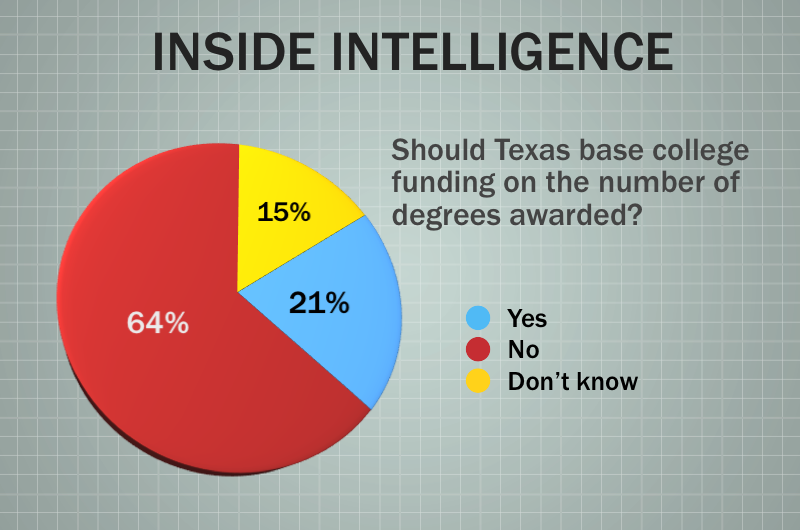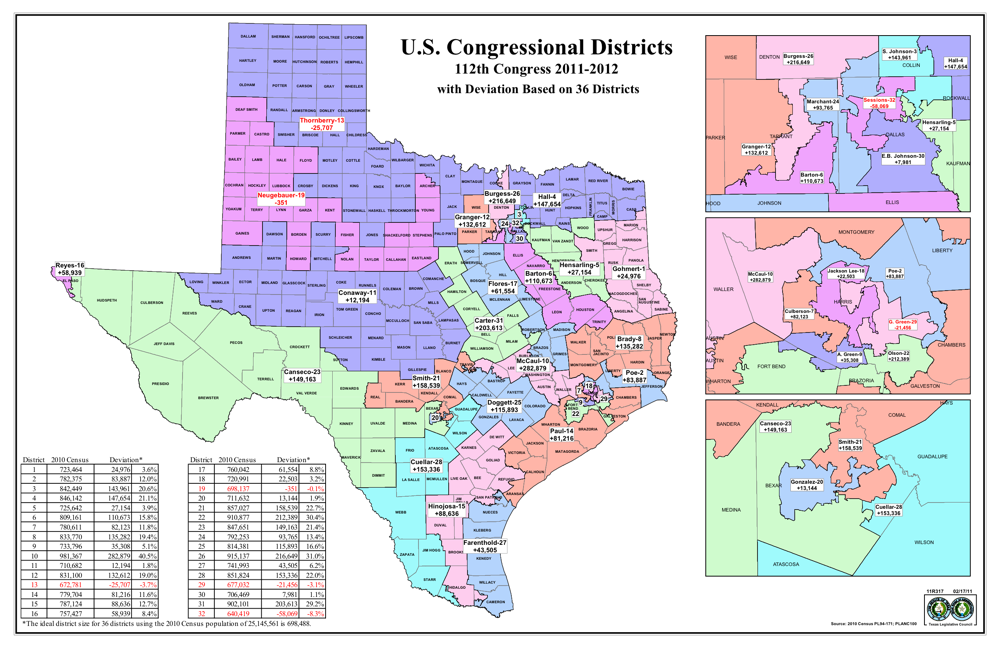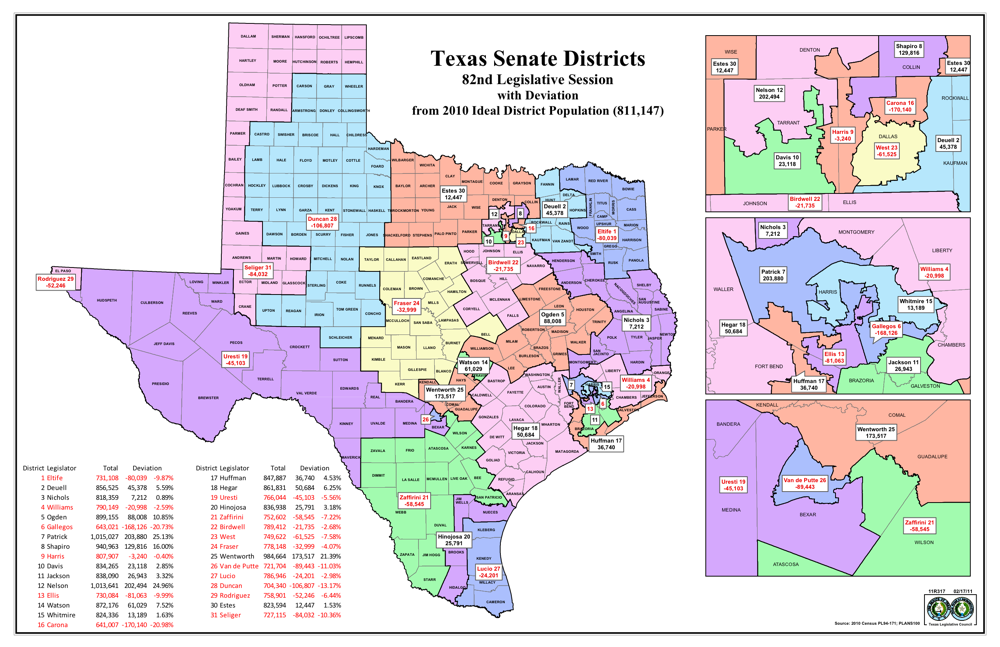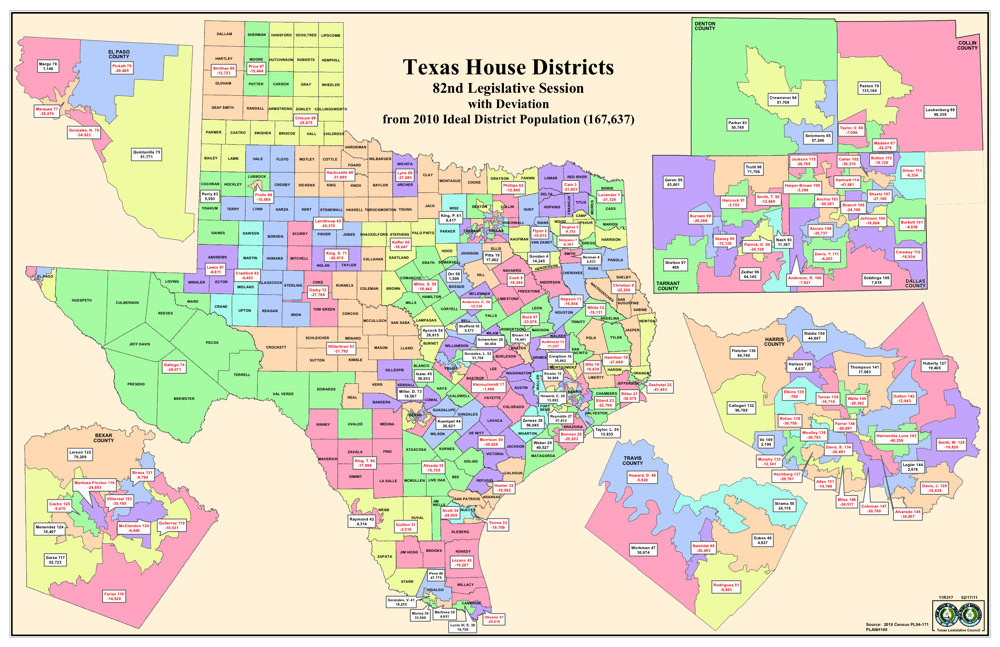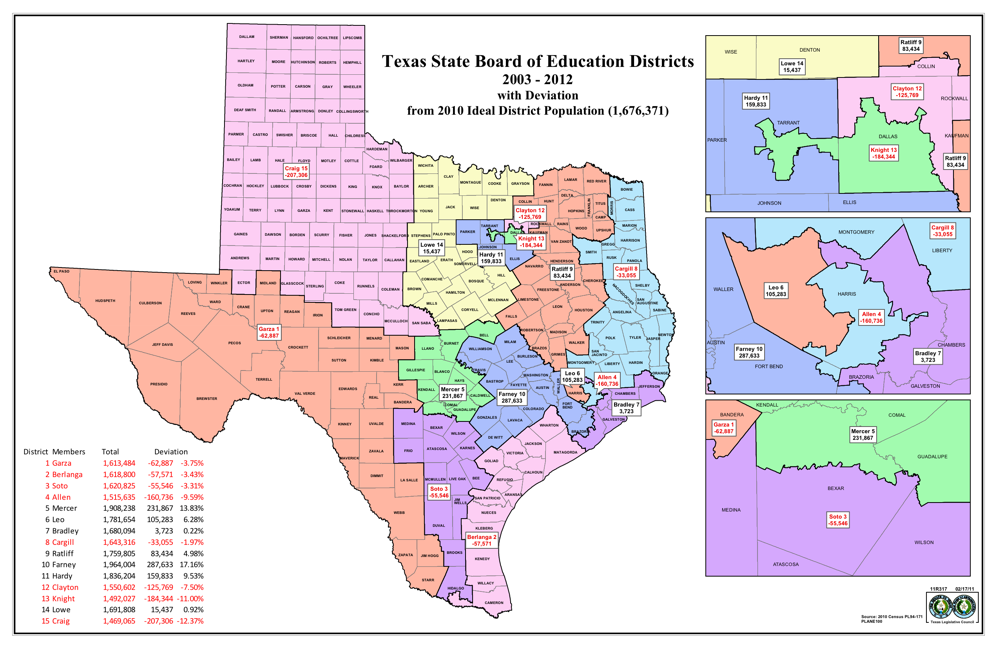Ever have that feeling that, "Don't worry, it's all good," means, "You're already baked"?
Speaker Joe Straus appointed members to committees, shuffling the assignments in a Texas House where one in four members is a freshman and where Republicans have a two-to-one numerical advantage. As usual, some House members were surprised. Some of them were doubly surprised when they read about their assignments on the Quorum Report an hour or more before they were made public by the Speaker's office (a note to leakers: when you're the only outfit in possession of the leaked information, all inquiries lead back to you; just sayin').
With the panels named, he can start assigning legislation to various committees for consideration, and that will get under way quickly, with the House Appropriations Committee diving into the budget this week.
Straus had several openings to fill, with members either retiring or getting beat and leaving chairmanships open on Calendars, Corrections, Culture, Recreation and Tourism, Defense & Veterans' Affairs, Human Services, Licensing & Administrative Procedures, Public Safety, Redistricting, and the House Select Committee on Federal Economic Stabilization Funding.
Calendars sets the House's agenda — what bills come up. Licensing is the committee where most gaming legislation is handled. Redistricting, within the political micro-climate of the Legislature, is where the politicians go to tell their own futures.
Some members did just fine, and some made the best of what they got. The Democrats knew what was coming when they saw the results on Election Night. After the voting, and the jersey changes for Alan Ritter of Nederland and Aaron Peña of Edinburg, the 77-73 House gave way to the 101-49 House. And what had been a 19-16 split on committee chairmanships is now a 27-11 split. It was one of those "Shut up and take your medicine" moments, and for the most part, they did.
The big busts were Rene Oliveira, D-Brownsville, who left the middle seat on Ways & Means and got the middle seat at Land & Resource Management. Joe Pickett of El Paso is still on Transportation, but without the gavel in his hand; he's now chairing Defense & Veterans' Affairs. That's not a bad gig, given the military presence in El Paso, but it's not Transportation. Rep. Yvonne Davis, D-Dallas, didn't vote for the speaker or against him. She didn't even press the button for the white "abstention" light. She just sat there. And for whatever reason, she's no longer the chair of Urban Affairs.
Beverly Woolley, R-Houston, whose endorsement of Straus before the session started broke the opposition's momentum, is speaker pro tempore. Other notable elevations: Todd Hunter, R-Corpus Christi, will head Calendars, and Harvey Hilderbran, R-Kerrville, will head Ways & Means (which might have a limited role in a session where lawmakers are more allergic than usual to taxes).
What's left of the Polo Road Gang did all right, though they didn't all get what they wanted, or thought they might be getting. The Calendars Committee is packed with them; four of the seven who are still left are on that committee. The three who aren't have good jobs: Straus himself, Jim Pitts of Waxahachie, chairman of Appropriations, and Rob Eissler of The Woodlands, chairman of Public Education. (The PRG was a group of 11 Republicans who met at Byron Cook's condo two years ago to pick a challenger to Speaker Tom Craddick from their ranks. Straus was the surprised and surprising pick. Brian McCall quit to be chancellor of the Texas State System, Delwin Jones of Lubbock and Tommy Merritt of Longview lost their primaries, and Edmund Kuempel died.) Charlie Geren of Fort Worth heads Administration and is on five committees. Jim Keffer of Eastland heads Energy Resources and is on four panels. And Burt Solomons of Carrollton is suddenly everyone's best friend, as chairman of Redistricting. He's on three other committees, too. Dan Branch of Dallas, who signed up as soon as Straus' name rose to the top two years, also landed in clover, with a chairmanship (higher ed) and three more assignments.
Redistricting bears a mention here, as it's packed with committee chairs and Straus loyalists. That's the panel that will draw districts that help and hurt incumbents, a powerful lever in the hands of the Speaker and, on the other end of the building, the lieutenant governor.
And the opposition to Speaker Joe Straus isn't on the BFFs list; depending on your view, they were either punished directly or there simply wasn't anything left for them after the stalwarts were rewarded. Rep. Ken Paxton, R-McKinney, who pressed almost to the end — withdrawing just before the vote on the speaker — finds himself on County Affairs and Urban Affairs. Warren Chisum, who challenged Straus and then folded, as promised, when the GOP Caucus stuck with the speaker, landed on Appropriations and Environmental Regulation.
The members of the No-Joes are mostly freshmen, but there are some veterans, too, and some of their committee assignments were choice — and not in a good way. (It's always hard to know if freshmen got hosed because of bad juju or if it was just because they're freshmen.)
Leo Berman of Tyler, Wayne Christian of Center, Dan Flynn of Van, Phil King of Weatherford, Jodie Laubenberg of Parker, Tan Parker of Flower Mound, Paxton, and Bill Zedler of Arlington. Berman got Elections, but without his beloved Voter ID bill, which went to a special committee he's not on. Christian is on Ways & Means, an ordinarily powerful committee that looks to be emasculated by mass oaths against any new taxes. King, a ringleader in the anti-Straus group, got Urban Affairs. He lives in Weatherford, population 27,437.
The committee assignments are available here by member, and here by committee. Here's a list of chairmen, with asterisks indicating new chairmen (a few because they're heading new committees):
• Agriculture & Livestock*: Rick Hardcastle, R-Vernon
• Appropriations: Jim Pitts, R-Waxahachie
• Border & Intergovernmental Affairs: Veronica Gonzales, D-McAllen
• Business & Industry: Joe Deshotel, D-Beaumont
• Calendars*: Todd Hunter, R-Corpus Christi
• Corrections*: Jerry Madden, R-Richardson
• County Affairs: Garnet Coleman, D-Houston
• Criminal Jurisprudence: Pete Gallego, D-Alpine
• Culture, Recreation & Tourism*: Ryan Guillen, D-Rio Grande City
• Defense & Veterans' Affairs*: Joe Pickett, D-El Paso
• Economic & Small Business Development*: John Davis, R-Houston
• Elections*: Larry Taylor, R-Friendswood
• Energy Resources: Jim Keffer, R-Eastland
• Environmental Regulation*: Wayne Smith, R-Baytown
• General Investigating & Ethics: Chuck Hopson, R-Jacksonville
• Government Efficiency & Reform*: Bill Callegari, R-Katy
• Higher Education: Dan Branch, R-Dallas
• Homeland Security & Public Safety*: Sid Miller, R-Stephenville
• House Administration: Charlie Geren, R-Fort Worth
• Human Services*: Richard Peña Raymond, D-Laredo
• Insurance: John Smithee, R-Amarillo
• Judiciary & Civil Jurisprudence*: Jim Jackson, R-Carrollton
• Land & Resource Management*: Rene Oliveira, D-Brownsville
• Licensing & Administrative Procedures*: Mike Hamilton, R-Mauriceville
• Local & Consent Calendars: Senfronia Thompson, D-Houston
• Natural Resources: Allan Ritter, R-Nederland
• Pensions, Investments & Financial Services: Vicki Truitt, R-Keller
• Public Education: Rob Eissler, R-The Woodlands
• Public Health: Lois Kolkhorst, R-Brenham
• Redistricting*: Burt Solomons, R-Carrollton
• Rules & Resolutions: Ruth Jones McClendon, D-San Antonio
• State Affairs*: Byron Cook, R-Corsicana
• Technology*: Aaron Peña, R-Edinburg
• Transportation*: Larry Phillips, R-Sherman
• Urban Affairs*: Harold Dutton Jr., D-Houston
• Ways & Means*: Harvey Hilderbran, R-Kerrville
• Select Committee on State Sovereignty*: Brandon Creighton, R-Conroe
• Select Committee on Voter Identification and Voter Fraud*: Dennis Bonnen, R-Angleton
• Joint Committee on Oversight and HHS Eligibility System*: Fred Brown, R-College Station
Suiting Up
Before lawmakers have started drawing lines, before the Census Bureau has dropped the numbers on which those lines will be based, the first redistricting lawsuit in Texas has been filed. Attorney Michael Hull of Austin, representing three North Texas voters, sued the state and a bunch of others, alleging that counting undocumented immigrants in political districts has an unfair and illegal effect on voters in districts with smaller numbers of non-citizens.
The logic goes this way: If two districts have the same populations and one has more non-citizens than the other, it takes fewer voters in that district to swing an election. Fewer citizens means fewer voters means a smaller number makes a majority. Each vote is, compared to the district with more citizens, worth more.
That's interesting, but it's probably not the main point of the lawsuit. This appears to be (insert an asterisk for uncertainty here) the first lawsuit filed on redistricting and if it is, and if the courts don't burp it back up, it means the redistricting cases in Texas could go through a bunch of judges in and around Sherman. Hull asked for a three-judge panel — that's normal in redistricting. This is also pro forma: The suit pulls in redistricting for Congress, the Legislature, and the State Board of Education. Here's a copy of the lawsuit.
Inside Intelligence: The State of Things
Gov. Rick Perry delivered his sixth State of the State address this week, asking lawmakers to close some small agencies, to merge some others, to consider basing state funding for colleges and universities on the basis of how many degrees they reward, and challenging those schools to find a way to offer a bachelor's degree, with books included, for $10,000 or less. Our insiders were skeptical about the last two ideas, with 64 percent saying counting degrees is a bad way to measure success and 62 percent doubting that higher education institutions can produce a $10,000 baccalaureate. They're more optimistic when asked whether lawmakers are actually willing to close or combine agencies; 87 percent say, "Yes."
This week's open-ended prompt was: "If lawmakers decide to save money by consolidating or closing agencies, which state agencies should they target?" The full set of answers is attached, but here are some samples of how the insiders answered:
• "Supreme Court and Court of Criminal Appeals. Some of the appellate districts. The various health agencies."
• "They simply won't. The agencies all have big constituencies (and lobbyists who represent those constituencies) and they won't target any."
• "It doesn't matter. There is not enough money to be saved in consolidation to make any difference in the budget crisis."
• "It makes sense to consolidate the Texas Medical Board, the Texas Board of Nursing, the Texas Board of Dental Examiners, the Texas Optometry Board, the Texas Board of Examiners of Psychologists, the Texas Board of Chiropractic Examiners, the Texas Board of Pharmacy, the Executive Council of Physical Therapy and Occupational Therapy Examiners and the Texas Board of Podiatric Medical Examiners into one new agency, the Health Professions Agency."
• "TCEQ and the Railroad Commission"
• "Perhaps the State Board of Education could be closed."
• "PUC/RRC"
• "It would be nice if they actually sunsetted an agency that was up for sunset"
• "Cost savings from such actions are likely to be all show and no dough. Such an effort is really just a distraction from the real issues and hard budget choices that need to be made."
• "All health care licensing should be placed under the medical board. Quacks do not police the activities of fellow Quacks well."
• "None. Rearranging chairs on the deck. This is not the issue."
• "This discussion speaks to the failure of the sunset process which was designed to do this in a logical and orderly fashion. It doesn't work and needs to be reformed."
• "Small agencies that are mostly pass-thrus for federal money (like Housing & Comm Affairs) are good consolidation targets; put remaining staff in Gov's office. Closing regulatory agencies cuts the budget but doesn't really help balance it (the GR-dedicated issue)."
• "Perry's list is a good start."
• "Put the State Preservation Board under the Historical Commission, the Animal Health Commission under the Agriculture Department, the Alcoholic Beverage Commission under the Department of Public Safety, the Railroad Commission under the General Land Office, and the responsibility to collect all debt owed to the state under the Attorney General. Just for good measure, go ahead and replace the Lottery and Racing Commissions with the State Gaming Commission to handle the expansion of gambling in Texas!"
• "The legislature should consolidate TEA and THECB. Create an Education Czar overseeing both P-12 and higher education with a director for P-12 and another one for higher education."
Riddle Strikes Again
Rep. Debbie Riddle apparently took notes during Gov. Rick Perry's State of the State address. Immediately after the governor's call for lawmakers to draft legislation punishing employers who hire undocumented immigrants, the Tomball Republican filed House Bill 1202, which would make it a state jail felony to "intentionally, knowingly, or recklessly" hire an undocumented worker. Such felonies are punishable fines up to $10,000 and stints in jail of 180 days to two years.
The bill exempts those entering into contracts with or hiring undocumented immigrants to perform work only at single-family homes, which could exclude the thousands of Texans who employ unauthorized workers for domestic help. It also provides an exemption for employers who attempt to verify employment "in a manner that is more likely than not to produce a correct and reliable result." The bill does not mention verification through the federal electronic employment system known as E-Verify, which could make the proposed legislation more favorable to some Republicans. At least five bills have been filed requiring the use of E-Verify, to the displeasure of some GOP House members. The system is inaccurate, they argue, and it could actually hinder some small businesses in their attempts to hire legal workers. The Texas Association of Businesses has also taken a stance against E-Verify, claiming the system will hurt the state's businesses.
The Week in the Rearview Mirror
Questions continued to linger about blackouts that rolled through the state after a bitter cold front blew through Texas. State officials tried to figure out what allowed cold weather to knock 82 power plants offline, yanking power for hundreds of thousands of Texans. Officials also had questions for officials from ERCOT, the state's grid operator, about the spike in the wholesale price of electricity. The Public Utility Commission is overseeing an investigation into whether market manipulation was in play, and the Railroad Commission will weigh in with an assessment of the natural gas industry's actions during the crisis.
Amazon is pulling up stakes in Texas. The online retailer is in a legal fight with the state over whether it should collect and remit sales taxes. The comptroller sued the company for $269 million in uncollected sales taxes. Amazon officials say they had intended to expand, but will instead eliminate its physical presence in the state.
Court-watchers hope the approval of a federal judge in Laredo will help solve a critical backlog of cases. The U.S. Senate confirmed Magistrate Judge Diana Saldaña to fill one of two vacant positions after being nominated by President Barack Obama in July. Saldaña is the first judicial nominee of Obama's to receive approval in Texas, but several remaining judicial vacancies have some worried the state will be unable to handle an increasing number of drug and immigration cases.
After a three-judge panel of the 5th Circuit Court ruled against them, plaintiffs in a racial discrimination suit against the University of Texas appealed to the full court. They contend that a U.S. district judge and the panel misinterpreted the U.S. Supreme Court's opinion in a similar case at the University of Michigan. At issue is whether race can be considered as a factor in admission.
Gov. Rick Perry used his State of the State address Tuesday to criticize the federal government and, in particular, to slam Austin's representative in the U.S. House, Lloyd Doggett, for passing an amendment last year requiring Texas to maintain current levels of education spending as a condition for $830 million in federal funding. At the time, Democrats wanted Perry's commitment that he'd use the money solely on education for the next three years rather than to plug budget holes. Perry refused to sign, citing the Texas Constitution. A movement is now under way in the congressional Republican delegation to overturn the so-called Doggett amendment.
Bitter fighting over eminent domain may finally come to an end this legislative session as lawmakers work toward passing a compromise bill. Property owners and their allies have struggled to gain additional safeguards against eminent domain for years, and since Gov. Rick Perry declared it an emergency item this session, progress has already been made. The Senate passed a bill Wednesday, and the author of the House version, Charlie Geren, R-Fort Worth, predicted passage there.
Prison officials tasked with making budget cuts came up with a draft version full of controversial money-saving ideas. In addition to laying off more than 1,000 workers, they proposed closing drug treatment centers and reducing the number of meals prisoners would get on weekends. The prisoners' diets would also take a hit, with dairy milk being replaced with the powdered variety and bread substituted for buns.
Although the state and Environmental Protection Agency's relationship is still adversarial, a bipartisan group of state legislators is asking for the state to fund additional air monitors in North Texas. Thirty lawmakers sent a letter to Gov. Rick Perry urging him to fast-track their request to have the Texas Commission on Environmental Quality install 20 air monitors near the Barnett Shale gas field to get a clear picture of the air quality in the region, where shale drilling has stirred controversy. Costs are expected to be between $3 million and $7 million for the first two years and $1 million to $3 million per year after that.
Political People and Their Moves
Gene Powell of San Antonio was elected by his fellow regents to be the new chairman of the University of Texas System Board of Regents. Paul Foster, R. Steven Hicks and James Dannenbaum were elected vice chairmen.
Brian Guthrie will take over as executive director of the Teacher Retirement System when Ronnie Jung retires in September. Guthrie is the deputy now and came to TRS in 2008; for the decade before that, he worked for Lt. Gov. and then Gov. Rick Perry.
Craig Casselberry is joining the Austin office of the Weber Shandwick public relations firm; his most recent gig was with Quorum Public Affairs, the firm he started in 1994.
Gov. Rick Perry appointed three members to the Texas A&M University System Board of Regents, pending Senate confirmation. Judy Morgan of Texarkana is owner and president of Jack B. Kelley Enterprises Inc. Elaine Mendoza of San Antonio is president and CEO of Conceptual MindWorks Inc. Cliff Thomas of Victoria is owner and CEO of Thomas Petroleum LLC, Speedy Stop Food Stores and C.L. Thomas Inc.
Perry reappointed Deeia Beck of Austin to the Office of Public Insurance Counsel, which represents insurance consumers in regulatory matters relating to insurance rates, rules and forms. Beck is the public counsel for the Office of Public Insurance Counsel.
The governor reappointed Ray Wilkerson of Austin presiding officer of the Central Texas Regional Mobility Authority. Wilkerson is the president and CEO of Ray Wilkerson Companies Inc., a real estate investment firm.
Department of Corrections: Yup, we put a D behind Aaron Peña's name last week, out of habit. He is now, of course, a Republican. Sorry, sorry, sorry.
Quotes of the Week, Heavyweight Division
Sen. Kevin Eltife, R-Tyler, has reached some conclusions after sitting through testimony in the Senate Finance Committee. They've already gone over health and human services, public education, and some higher education. But in the middle of Texas A&M Chancellor Mike McKinney's testimony, Eltife went on a jag:
"In my opinion the cuts are not acceptable. Everyone's done an admirable job of cutting expenses and doing their best. As Chairman Ogden said, it is incumbent on us to make those decisions, but we have to find more revenue. We have to use the Rainy Day Fund.
"Businesses set aside money for a reason. In down times, they use their fund balances. I see it all the time. Do you use it all? Of course not. Do you soften the blow of cuts? Of course you do. You also have to find additional revenue.
"Sen. Duncan is right: We have an investment in higher ed, in public education, in health and human services. We have an investment in Texans. We have got to find the revenue on this side of the table to make these cuts less of a burden on Texans.
"There's no other way to do this. We can dance around it all we want and talk about, "Oh, is it revenue? Is it a tax? Is it this? Is it that?" We have to find additional revenue. We spread the pain with cuts, revenue, and the Rainy Day Fund. Any other idea in this building is just crazy to me."
Quotes of the Week
Gov. Rick Perry on how he sees the budget deficit, during his State of the State address at the Capitol: "Now the mainstream media and big-government interest groups are doing their best to convince us that we're facing a budget Armageddon. Texans don't believe it, and they shouldn't, because it's not true."
U.S. Rep. Lloyd Doggett, D-Austin, on the governor's charge that Doggett has held up federal funding for education: "His jibe says less about the state of the state and more about his own state of denial."
Rep. Joaquin Castro, D-San Antonio, on the governor's address: "The fact is that 2011 is Rick Perry's 'Madoff moment.' You see, the governor years ago established a system that really is a Ponzi scheme."
Senate Higher Education Chairwoman Judith Zaffirini, D-Laredo, on Gov. Rick Perry's $10,000 degree challenge: "There may be a way to do it. Perhaps at a community college or a small regional college. Your emerging research universities aren't going to do it, and your national research universities probably can't do it."
Sen. Jeff Wentworth, R-San Antonio, on the legislatively mandated practice of setting aside public school tuition to fund need-based financial aid: "We should never have done this. This is abusive on our part."
Rep. Joe Pickett, D-El Paso, on losing his position as chairman of the House Transportation Committee following the announcement of Texas House committee assignments on Tuesday, in the El Paso Times: "I've been asked to do this so that the Republicans can have the chairs. Whether they are honorary or not, they get them."
Sen. Leticia Van de Putte, D-San Antonio, on how her career as a pharmacist has helped shape her support for abortion rights: "I am Catholic, but I am also a pharmacist. I tell you, nothing is more heartbreaking than a women coming to the pharmacy … usually in her 30s, usually with three or four children, with that look of desperation in her eyes, and to look at me and [ask], 'Is there anything I can take to bring down my period?'"
State Education Commissioner Robert Scott on the difficulty of determining what items he would ask to be revived in the final state budget for public education: "It's like asking a guy on the operating table whether he wants his heart or his lungs back."
Randall "Buck" Wood, lawyer for Democratic Rep. Donna Howard, during closing arguments in the election contest filed by Republican Dan Neil, who is less than a dozen votes down: "I think Mr. Neil, with his background in football, knows that at the end of the game, if somebody's got 23 points and the other person's got 24 points, the person with 23 points loses."
Lt. Gov. David Dewhurst, in the Los Angeles Times: "A lot of the things we are doing arguably aren't priorities for the people of Texas. People could stake me and Gov. Perry on the ground and torture us, and we still would not raise taxes."
California Treasurer Bill Lockyer, in the same article: "Someone just turned the lights on in the bar, and the sexiest state doesn't look so pretty anymore."
Contributors: Julian Aguilar, Reeve Hamilton, Ceryta Lockett, David Muto and Morgan Smith
Texas Weekly: Volume 28, Issue 6, 14 February 2011. Ross Ramsey, Editor. Copyright 2011 by The Texas Tribune. All Rights Reserved. Reproduction in whole or in part without written permission from the publisher is prohibited. One-year online subscription: $250. For information about your subscription, call (512) 716-8600 or email biz@texasweekly.com. For news, email ramsey@texasweekly.com, or call (512) 716-8611.



